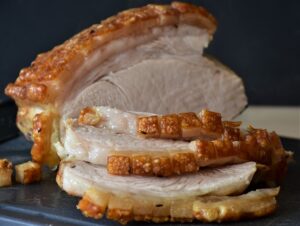Introduction
Knowing whether your hair needs protein is essential for maintaining its health and strength. Protein is a vital component of hair, responsible for its structure and resilience. However, too much or too little protein can lead to various hair issues. In this article, we will explore how to determine if your hair needs protein and provide insights into maintaining a protein-balanced hair care routine.
Signs that Indicate a Need for Protein
Excessive Breakage: If you notice a significant increase in hair breakage, it may be a sign that your hair lacks protein. Protein helps strengthen the hair shaft, and insufficient protein can lead to weak and brittle strands.
Elasticity Loss: Healthy hair should have a certain level of elasticity, allowing it to stretch and return to its original shape without breaking. If your hair lacks elasticity and snaps easily when stretched, it may be a sign of protein deficiency.
High Porosity: Hair with high porosity absorbs moisture quickly but struggles to retain it. This can be caused by damage to the hair cuticle, which is often associated with protein loss. If your hair feels dry and frizzy despite regular moisturizing efforts, protein deficiency may be the underlying issue.
Overly Soft or Mushy Texture: While soft hair is desirable, hair that feels excessively soft or mushy can indicate an imbalance in protein levels. Protein helps provide structure and strength to the hair, and too little protein can result in hair that lacks body and feels overly limp.
How to Address Protein Deficiency
Protein Treatments: Incorporating protein treatments into your hair care routine can help replenish protein levels. Look for products specifically formulated for protein repair, such as deep conditioning masks or protein-based leave-in treatments. These treatments can help strengthen the hair and restore its natural balance.
DIY Protein Masks: If you prefer natural alternatives, you can create DIY protein masks using ingredients like eggs, yogurt, or mayonnaise. These household items are rich in protein and can be mixed with other nourishing ingredients to create a homemade protein treatment. However, it’s important to note that excessive protein usage can lead to hair becoming too stiff and brittle, so moderation is key.
Adjusting Hair Care Routine: Evaluate your current hair care routine and make adjustments to promote a protein-balanced regimen. Avoid overusing heat styling tools, as excessive heat can damage the protein structure of the hair. Additionally, minimize chemical treatments, such as perming or relaxing, as they can weaken the hair’s protein bonds.
Conclusion
Understanding whether your hair needs protein is crucial for maintaining its health and preventing common issues like breakage and dryness. By recognizing signs of protein deficiency and incorporating protein treatments or adjusting your hair care routine accordingly, you can restore the protein balance in your hair and promote its overall strength and vitality.
References
– WebMD: www.webmd.com
– Healthline: www.healthline.com
– NaturallyCurly: www.naturallycurly.com












